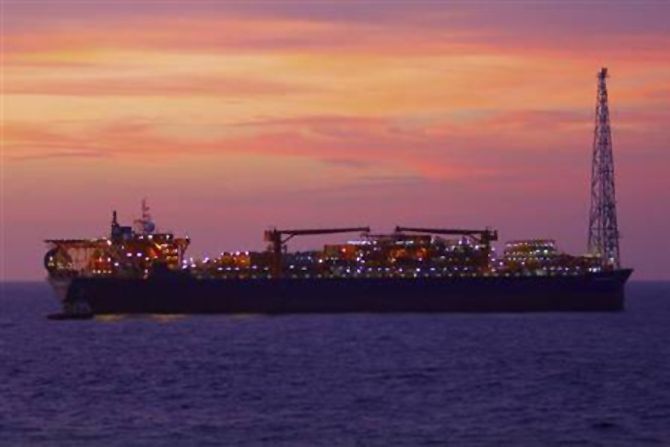Experts say finding a solution within the high court-mandated timeline of six months may be tough.
 The government has begun preliminary internal discussions to understand the implications of the findings of DeGolyer & MacNaughton's final report on the gas dispute between Reliance Industries (RIL) and Oil and Natural Gas Corporation (ONGC).
The government has begun preliminary internal discussions to understand the implications of the findings of DeGolyer & MacNaughton's final report on the gas dispute between Reliance Industries (RIL) and Oil and Natural Gas Corporation (ONGC).
While the petroleum ministry could seek legal opinions on the findings pertaining to gas migration from ONGC's block, experts say finding a solution within the high court-mandated timeline of six months, ending June 1, may be tough.
"An initial round of talks has taken place with the directorate general of hydrocarbon (DGH) over the final report and the technical aspects of the issue. Formal discussions will start soon between the ministry and other stakeholders to understand the implications," said a senior official. The government wants to avoid any controversy during the ongoing session of Parliament.
Asked whether RIL may be asked to compensate for the volume of ONGC's gas it has exploited, the official said: "These are hypothetical questions and assumptions until the ministry completes studying the report and holds discussions. The ministry will definitely take an action based on the study."
Texas-based consultant D&M had on Monday given its final report and said RIL has produced 317 billion cubic feet of the 393 bcf of gas that migrated from ONGC's blocks Godavari-PML and KG-DWN-98/2 (KG-D5).
While the consultant did not delve into the aspect of financial value, the volume of gas belonging to ONGC works out to around $1.7 billion (Rs 11,305 crore at current exchange rate) at a gas price of $4.2 per million British thermal units.
"It is difficult to predict the course of action . The government may not have a lot of options in this case; particularly given the fact the expert report has confirmed gas migration and its volume. It is a politically sensitive issue," said a senior analyst from an accounting and consultancy firm, who did not wish to be quoted.
Experts say one option before the ministry is to recommend joint development as provided under article 12 of the production-sharing contract.
However, the concept of joint development may not be applicable when discoveries are developed at different points in time and one operator has started production while the other is yet to begin.
A second option is to ask RIL to compensate for the volume of gas (nine bcm) belonging to ONGC and produced by RIL, but that would lead to a long-drawn legal battle.
A third option is to set up a high-level committee, including legal experts.
This may also lead to further delays, making it difficult for the government to act within the six-month deadline.












 © 2025
© 2025